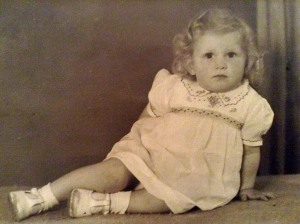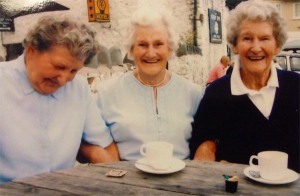So it's over to you, June!
Thank you!
‘I have always maintained the importance of aunts.’‘Aunts,’ someone said recently, ‘seem to have starring roles in all of your stories.’
Jane Austen
‘Aunts are not bad but they are inclined to be soppy and call you darling chiz chiz chiz.’
Nigel Molesworth
Do they? Well yes, I suppose that they do.
I think the stiff-as-sticks Beatrice and Eugenie, from An Englishwoman’s Guide, were probably summoned-up by Lady Bracknell – Algy Moncrief’s awful aunt in The Importance of Being Earnest.
Lovely Leonie, from The 20’s Girl – who taught her niece to dance the hoochie coochie and the turkey trot, while wearing ostrich feathers and waving an Egyptian cigarette in a long ebony holder – is possibly more like Auntie Mame, who sent her nephew to a school where all classes were held in the nude, under ultra-violet ray!
I adored my own aunts. I was the first girl in my mum’s family, and her sisters completely spoiled me – sitting me on their knees, twirling my curls around their fingers. Sigh.

PG Wodehouse seemed to have a thing about aunts, too. As a schoolboy, he was passed around between quite a few of them, apparently.
In his stories, they keep being blamed for all ills and failures.
‘Behind every poor innocent blighter who is going down for the third time in the soup,’ Bertie Wooster moans, ‘you will find, if you look carefully enough, the aunt who shoved him into it.’
Then, there are Agatha and Dahlia – sister’s to Bertie’s father in The Mating Season. Agatha, according to Bertie, ‘is the one who chews broken bottles and kills rats with her teeth.’ She has ‘an eye like a man-eating fish and wears barbed wire next to the skin.’
Who could resist characters like that?
 This picture of my mum and her sisters, Nell and Kath was taken in Somerset, when they were all in their late eighties. We were spending a few days together at a hotel in Somerset. I have never got through so much brandy in my life. ‘Ooh, just another nip, ducky! Helps you to sleep, y’know.’ All three lived well into their nineties.
This picture of my mum and her sisters, Nell and Kath was taken in Somerset, when they were all in their late eighties. We were spending a few days together at a hotel in Somerset. I have never got through so much brandy in my life. ‘Ooh, just another nip, ducky! Helps you to sleep, y’know.’ All three lived well into their nineties. I think of them every day.
Eccentric, exotic, mad, bad or dotty – for me, aunts do seem to offer a new angle on the world and on my writing. Does anyone else feel the same attraction?!
June

1 comment:
I enjoyed this, June. I, too, had some wonderful aunts. My Communist aunt, for example, used to say, 'Nobody's red enough for me, dear!' I just loved the 'dear' at the end.
I also think aunts played an important role in the British Empire - not necessarily a happy one. An unmarried aunt at Home, often got landed with children who were sent back from India or, in Saki's case, Burma. His short stories are full of ferocious aunts - most of whom came to well-deserved sticky ends.
Post a Comment